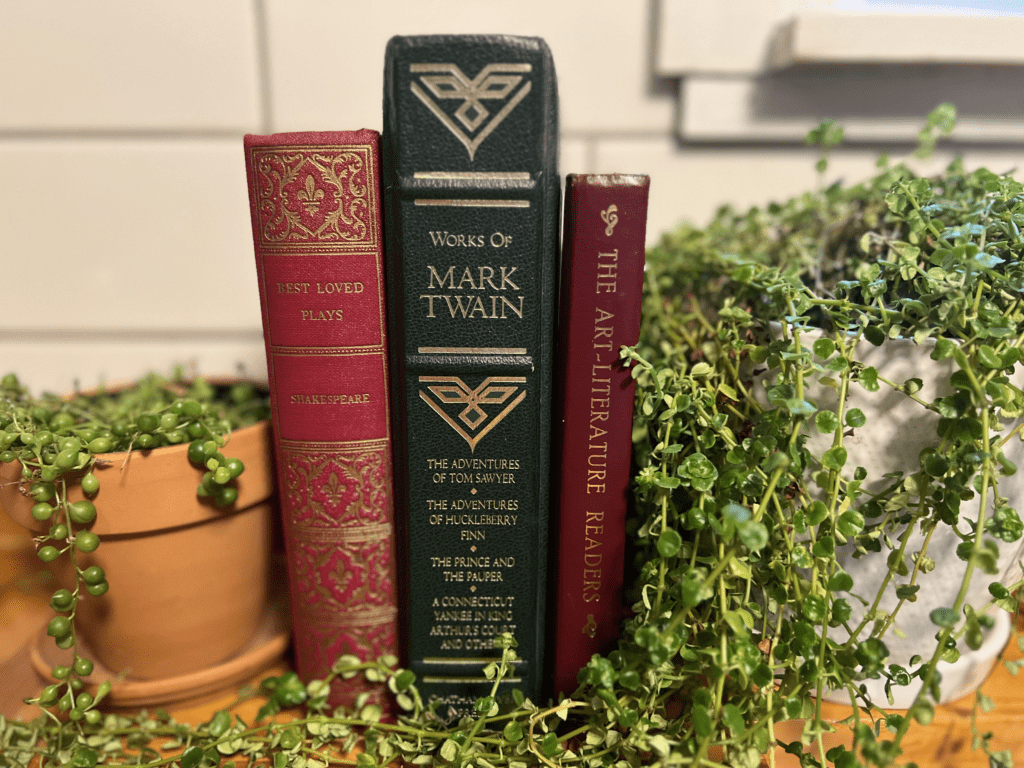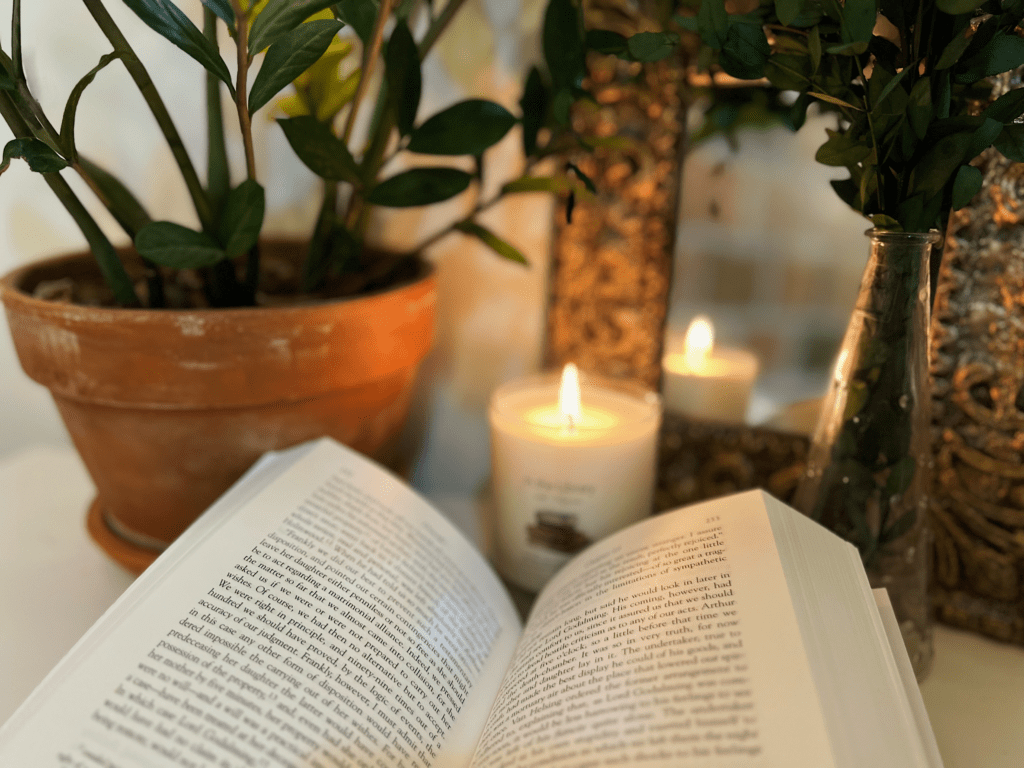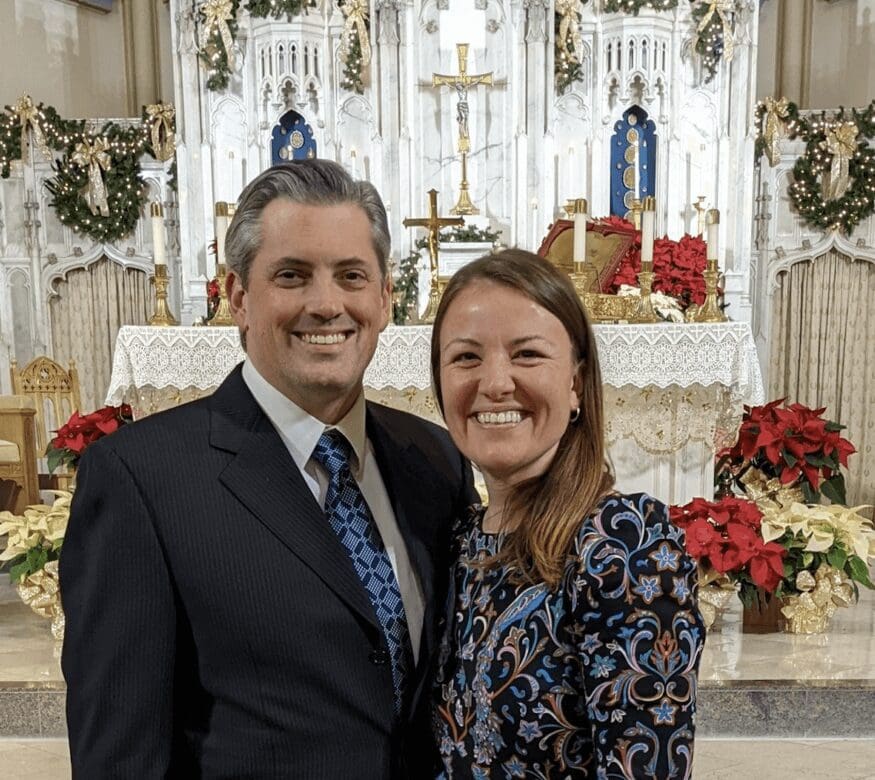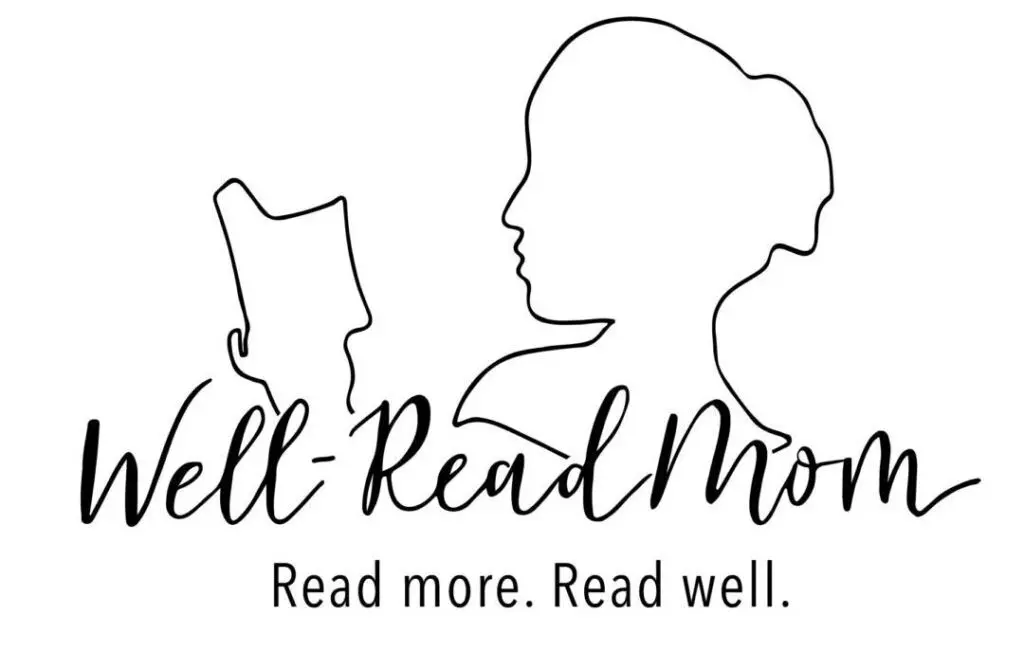Dracula and the sacredness of marriage
Written by Nicki Johnston
I love reading aloud to my husband. We have enjoyed this activity ever since we were dating, but for the past few years we’ve made it an intentional habit. Most nights, after the kids settle into bed, we make our way back downstairs to the kitchen where he finishes up the dishes while I read aloud to him. As I mentioned in this earlier post, we’ve read quite a few books in this way.
The challenge, though, is finding books that we both find interesting. There’s very little overlap in our Venn diagram of his preferred genre (hard science fiction/space opera) and mine. C.S. Lewis’s space trilogy hits the sweet spot, and so does A Canticle for Liebowitz (post apocalyptic monks? Yes, please!), but we often have to look outside of both of our comfort zones for titles to share. As soon as the booklist was released for this year, I knew that Dracula would be our next readaloud.

For three months (totally coincidentally finishing on the EXACT date that the story ends—Monday, November 6), we immersed ourselves in this Gothic novel, which both intrigued and terrified our four boys. They strained their young years from upstairs to hear what we were reading and asked each morning what had happened the night before. We withheld much in order to protect their imaginations, but we happily shared certain parts with them, for the same reason both Marcie and Joseph Pearce quoted GK Chesterton in our audios. Our boys loved hearing about how Dracula cowered from the Eucharist and the crucifix in the same way that they love St Michael the Archangel, St Joseph “Terror of Demons” and Mary stomping on the head of the serpent.
With all of these factors framing my reading, my experience with the book was delightful. Not a word that I anticipated could describe this particular read nor one that I imagine most women would use. I’m not sure I could have handled the creepiness of some of the scenes if not for my husband’s presence mitigating the terror of the evil at hand. I also enjoyed the (perhaps unintentional) hilarity of the book, largely because I was reading it aloud. But the best part was the way that reading it with my husband helped us to appreciate Mina and Jonathan’s marriage as a central part of both the book and the team’s success at defeating Dracula in the end.
I went into the book expecting to roll my eyes at the way that female characters were portrayed (didn’t WRM warn us about this?), but I thought Mina was wonderful. She was smart and resilient and essential to the group—not only for what she did (organizing those diary entries was no easy task!) but, more importantly, for who she was.
My husband and I mentor engaged couples, and the curriculum we use talks about masculinity and femininity as that which attracts one outside of themself and to the other. Mina’s femininity did just that—for her husband, to be sure, but also for the other men in their group, particularly Dr. Van Helsing, who laments to her that his “life is a barren and lonely one, and so full of work that [he had] not had much time for friendships” (254). Dr. Van Helsing, in the last words of the novel, even attributes all the men did to their love for Mina.
Furthermore, as I pondered the use of sacramentals in the book and their efficacy in warding off evil, I was thinking about the sacrament of marriage and our own sacramentals. I recently read Karol Wojtyla’s The Jeweler’s Shop (I’m slowly making my way through the WRM backlist; this one came from the Year of the Spouse), and in it there is a heartbreaking part where an unhappily married woman tries to return her wedding ring. The mysterious jeweler places her ring on the scale, and it weighs nothing. “Your husband must be alive—in which case neither of your rings, taken separately, will weigh anything—only both together will register. My jeweler’s scales have this peculiarity that they weigh not the metal but man’s entire being and fate” (52).
Shortly after reading this, and being so moved by this passage in particular, our parish hosted a first-class relic of Saint Pope John Paul II. After venerating the relic and touching our rosaries to it, one of the Brothers of the Servants of the Pierced Heart of Jesus invited my husband to touch his wedding ring to it. I had never really thought about our wedding rings being sacramentals—and now they are third-class relics, having touched a remain of the very man who wrote those beautiful words in his play.
Another part of our marriage prep curriculum is helping the couple to understand that they—the two married persons—are themselves the sacrament, the outward sign of inward grace, a manifestation of Christ’s love for His bride, the Church.
Do Jonathan and Mina live up to this in the book? Is this what Bram Stoker was going for? I’m not sure, but it does seem to me that the turning point in the story is Jonathan and Mina’s marriage. She goes to Budapest to marry and then help nurse her husband back to health, and their arrival together back in England—sadly, too late to help Lucy—signals the bonding of the group of friends who will fight—and ultimately defeat—the solitary Dracula.
While Jonathan failed to protect his bride from Dracula’s attack (what were those men thinking leaving her all alone in that asylum at night?!), he was able to redeem his negligence. As Van Helsing reminded him, taking care of his wife was Jonathan’s “best and most holiest office” (416). And when the time came, Jonathan exercised his “right to destroy” Dracula—with Quincey’s help, of course—saving his wife’s soul. The dragon was killed, the happy couple bore a son, and Graham and I couldn’t wait to share this ending without our boys at the breakfast table the next day.


Nicki Johnston
Nicki Johnston is a home educator, a CGS catechist, an avid reader and an amateur naturalist. She lives in Kansas with her husband, Graham, and their four young sons.
About Well-Read Mom
In Well-Read Mom, women read more and read well. Our hope is to deepen the awareness of meaning hidden in each woman’s daily life. We long to elevate the cultural conversation and revitalize reading literature from books. If you would like us to help you select worthy reading material, we invite you to join and read along. We are better together! For information on how to start or join a Well-Read Mom group visit our website wellreadmom.com

